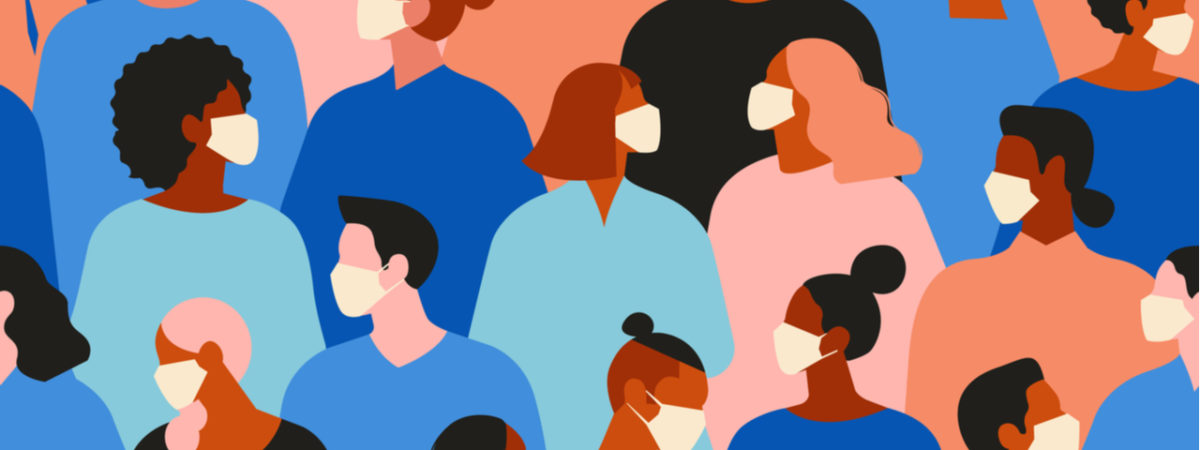The economics of Coronavirus-induced isolation: some initial thoughts
SUGGESTED



For one thing, I wonder about the practicality of it. There are 10 million people in this age group. But many of them will, like me, have partners and family living with them. In my case my partner is much younger than me, and we have two children at primary school. It’s not feasible for me to avoid close physical contact with other members of the household for four months; we’re not living in Buckingham Palace. So should all members of the household isolate? In which case, the numbers involved rise by several millions more, as do the difficulties of enforcement.
The recommendation that all the self-isolated have groceries and medicines delivered places great faith in our supermarkets and pharmacies and their ability to execute orders in a timely manner. They – especially pharmacies – are not set up for home deliveries on the required scale. The plan also assumes that older people have mastered the internet or are able to communicate clearly via phone, text or email. Many of the ‘older elderly’, those in their late 80s and 90s, will have great difficulties. We can’t assume that all such people are currently known to doctors or local authorities. At a time when the workforce will necessarily be shrinking, to expect a substantial increase in the servicing and monitoring of older people seems wishful thinking.
Incidentally, the shrinking of the workforce will include the loss of approximately half a million of us who are still working in our seventies and beyond. The growing numbers working past retirement age has been a positive feature of the labour market in recent years (as has the huge numbers of older people involved in voluntary work), something we need to encourage given demographic trends and the ever-growing burden of pensions and social care. The arbitrary cancellation of a segment of the healthy workforce will not help the economy when – if – we return to something like normality. If people slip back into the view that there is no such thing as healthy and active later life there will be profound consequences and a further rise in the dependency ratio.
The logic of keeping older people away from infection is sensible, but economists should always be aware of the possibility of unforeseen consequences. Early comment in the media has concentrated on the mental effects of isolation, which could indeed be considerable. But other effects on health could be equally as important. Staying at home and not taking exercise may be a factor in increased numbers of strokes and heart attacks. Added to inevitable delays in response where people are living alone, we can expect a higher death rate. Remember, too, that serious illnesses such as cancer may develop during a prolonged period of isolation when people cannot get out to visit a doctor for a check-up. This will also increase mortality. So any putative gains from reduction of COVID-19 deaths needs to be offset against increased deaths from other causes.
I guess the libertarian in me also objects to the idea of characterising whole groups of people on the basis of statistical patterns. No such inhibitions on social media, I see: this morning I have seen some hugely distasteful comments about “urine-soaked Brexiteers”, “selfish boomers” and so on. Less abrasively, there was a degree of condescension in Matt Hancock’s assertion that the lockdown of 10 million people was “for their own good”, as if a huge segment of the population cannot be trusted to do the right thing. Perhaps he’s right, though I didn’t see many oldsters in Sainsbury’s stripping the shelves of toilet paper, which strikes me as pretty irrational.
But this sort of thinking is dangerous. There is evidence to suggest that most urban knife crime is committed by young black men on other young black men. But we don’t confine young black men to their homes ‘for their own good’. We don’t even allow the police to stop and search simply on the basis of a statistical regularity. Classifying large groups of people on the basis of the behaviour or the vulnerability of some of their members is at odds with modern conceptions of rights.
I’m sure that, given the unknown trajectory of this coronavirus, we are all best advised to minimise unnecessary social contact and wash our hands frequently. Those who are likely to be at greatest risk should take more precautions than most. But we should be wary of arbitrary restrictions and turning the country into a police state on Chinese lines. We will no doubt try to do what the government advises, but let’s hope that in drawing up rules for the next stage of the battle against COVID-19 our rulers will think carefully about the wider consequences of measures they enact.
3 thoughts on “The economics of Coronavirus-induced isolation: some initial thoughts”
Comments are closed.





A typically lovely piece from Len Shackleton. Ultimately, governments are being driven by the science, yet the science is not monolithic. There’s a lovely exchange on the Stat (also known as Statnews) website between two great epidemiologists, John Ioannidis of Stanford (who claims we don’t know enough about this virus to justify the sorts of measures Len Shackleton laments) and Marc Lipsitch of Harvard (who claims we do.)
They both write accessibly, without an equation in sight, and thanks to their exchange the rest of us can make up our own minds without having to accept the government’s dicta as gospel.
Dear Len,
Like you I’m a libertarian and in the ((borderline vulnerable) group, I’ve been warning for years of the insidious loss of freedoms brought by technology.
However tech could well be our saviour. A simple link between home address and a cheap smart phone would enable the health authorities to tailor messages by geographic area and monitor our whereabouts and contacts. The authorities can do this anyway, now could be the time for us to do it knowingly, for it to be done with our control, not covertly, for there to be clear self benefit.
Let’s hope we all get through this. Best wishes, Nick
Scientists are saying this emergency will last for up to 2 years. It won’t be OK till we have a vaccine.
But telling peole to stay at home for more than couple of weeks would be a disaster for physical and mental health. From what I have read most of the advice, hygiene and social distancing is essential.
But we could go for walks and cycle rides within these limitations.
We could even meet for a coffee if we took a flask of coffee each and sat 2 metres apart, talking by phone if needbe. I see that the government has had to rush out advice. But now it should find nuanced ways to enable exercise and maintian friendships